Matcha Caffeine vs Coffee: Which Powers You Better? A Scientific Guide with Bazan Coffee
As more people seek mindful energy over mindless caffeine jolts, the debate between matcha and coffee intensifies. Whether you start your morning with a rich espresso or a soothing matcha latte, you're likely wondering: matcha caffeine vs coffee—which has more, and which delivers energy more effectively?
This in-depth guide compares matcha and coffee caffeine levels from a scientific and functional angle. Citing sources like the Specialty Coffee Association (SCA), Coffee Quality Institute (CQI), World Coffee Research, and Barista Hustle, we explore not just “how much,” but “how it feels.”
Let’s break down what the data says—and what Bazan Coffee offers as a high-performing, versatile source of natural caffeine.
Caffeine Content: How Much Caffeine in Matcha vs Coffee?
|
Beverage (Standard Serving) |
Avg. Caffeine (mg) |
|
Matcha (1 gram) |
60–70 mg |
|
Matcha Latte (8–12 oz) |
30–70 mg |
|
Brewed Coffee (8 oz, Arabica) |
95–120 mg |
|
Brewed Coffee (8 oz, Robusta) |
140–200 mg |
|
Espresso (1 oz shot) |
63–75 mg |
Summary: Coffee generally contains more caffeine than matcha, especially when using Robusta beans like Bazan’s Fine Robusta – Krong Năng.
So, if you’re asking does matcha have more caffeine than coffee—the answer is no, at least not in most standard servings.
Chemical Structure: Why Matcha and Coffee Feel Different
While caffeine levels vary, how the body absorbs and reacts to that caffeine is what truly defines the user experience.
Matcha’s L-Theanine Effect
-
Matcha contains L-theanine, an amino acid that slows caffeine absorption, promoting calm focus rather than sharp stimulation.
-
According to Barista Hustle’s 2021 review on psychoactive compounds, matcha's theanine-caffeine synergy creates a smoother curve of alertness.
-
This makes matcha a favorite among those seeking a steady, meditative mental state—ideal for yoga, study, or creative work.
Coffee’s Fast-Acting Kick
-
Coffee delivers caffeine that’s more bioavailable and quickly absorbed (within 15–30 minutes).
-
Chlorogenic acids and diterpenes in coffee enhance cognition and fat metabolism but can increase heart rate.
-
A cup of Robusta-heavy coffee from Bazan can raise alertness within minutes, making it better suited for morning commutes, high-performance work, or fitness.
CQI confirms: caffeine in coffee reaches the bloodstream faster, peaking within 30–60 minutes. Matcha’s caffeine peaks later but stays longer.
How They Compare: Matcha Caffeine vs Coffee Effects
|
Effect |
Matcha |
Coffee |
|
Onset Time |
Slow (30–60 mins) |
Fast (15–30 mins) |
|
Duration |
Long (4–6 hours) |
Shorter (2–3 hours) |
|
Crash Risk |
Low |
Moderate to High |
|
Mental State |
Calm, focused |
Alert, sometimes jittery |
|
Mood Regulation |
Better (due to L-theanine) |
Can spike cortisol |
|
Antioxidant Profile |
High in EGCG and catechins |
High in chlorogenic acids |
|
Digestive Comfort |
Gentle on stomach |
Can irritate if overextracted |
Matcha is often favored by meditators, yogis, and students. Coffee remains the staple for high-output professionals, athletes, and early risers.
Does Matcha Have More Caffeine Than Coffee? Breaking the Myth
One of the most persistent myths online is that matcha contains more caffeine than coffee. Here's the real story:
-
No, matcha does not have more caffeine than coffee. Even ceremonial-grade matcha typically delivers 60–70 mg per gram, while a regular 8 oz cup of Bazan’s Arabica averages 100 mg.
-
Matcha's slower absorption creates a feeling of stable energy, which is often mistaken for a stronger effect.
That said, matcha’s caffeine concentration can vary based on leaf grade, shading technique, and powder-to-water ratio. Bazan’s coffee, by contrast, is lab-tested and batch-profiled for consistent caffeine yield.
Caffeine Use Cases: When to Choose Matcha vs Coffee
Matcha is Ideal For:
-
Afternoon work sessions where jitter-free clarity is needed
-
Meditation, mindfulness practice, and creative flow states
-
Individuals with caffeine sensitivity or adrenal fatigue
-
Digestive ease (especially on an empty stomach)
Coffee is Best For:
-
Morning alertness and high-energy starts
-
Physical performance and gym sessions
-
Tactical focus—coding, trading, meetings, or high-intensity work
-
Habitual drinkers who crave flavor and variety
Bazan’s Special Vietnam Blend is balanced and versatile enough to bridge both worlds: stimulating yet smooth, aromatic yet grounded.
Bazan Coffee: Caffeine with Craft
Unlike generic commercial coffee, Bazan’s lineup is designed for both flavor complexity and controlled stimulation.
|
Product |
Bean Type |
Avg. Caffeine (8 oz) |
Sensory Profile |
|
Cau Dat Arabica |
Arabica |
90–110 mg |
Floral, tea-like, clean |
|
Special Vietnam Blend |
Blend |
120–150 mg |
Caramel, spice, balanced body |
|
Fine Robusta – Krong Năng |
Robusta |
160–200 mg |
Bold, dark chocolate, long finish |
Each batch is traceable, fermented with intent, and roasted under SCA protocols.
FAQs: Matcha Caffeine vs Coffee
Q1: Which is healthier—matcha or coffee?
Both offer unique benefits. Matcha is rich in EGCG and chlorophyll. Coffee supports metabolic health and contains over 1,000 aroma compounds that support brain performance.
Q2: Is matcha better for anxiety than coffee?
Yes. Matcha’s L-theanine helps prevent overstimulation, making it better for those prone to anxiety or sleep disruption.
Q3: Can I drink matcha and coffee together?
Yes, but space them out. Try starting your day with Bazan espresso and using matcha in the afternoon for sustained focus.
Q4: Which gives more energy per gram?
Coffee. One gram of Robusta from Bazan delivers 2–2.2% caffeine by weight, nearly double matcha’s content.
Q5: Which is better pre-workout?
Coffee wins, especially Bazan Robusta or Special Vietnam Blend. Matcha is better suited for yoga, dance, or light cardio.
Final Verdict: Matcha Caffeine vs Coffee
-
If you want fast energy and flavor customization, choose coffee.
-
If you want calm concentration and digestive comfort, choose matcha.
-
If you want sustainable, high-quality caffeine, choose Bazan Coffee.
Bazan Coffee empowers you to brew your day intentionally—whether you're craving bold espresso or refined elegance.
Shop Bazan Coffee and Brew Your Energy with Purpose
Visit our shop page and discover:
-
Fine Robusta – Krong Năng: unmatched caffeine strength with a bold yet clean finish
-
Special Vietnam Blend: the best of both worlds—energy and elegance
-
Cau Dat Arabica: a gentle, fragrant option for those seeking clarity without overload
Because caffeine isn’t one-size-fits-all—and Bazan gives you the freedom to choose wisely.
Elevate your ritual. Brew smarter. Choose Bazan.



